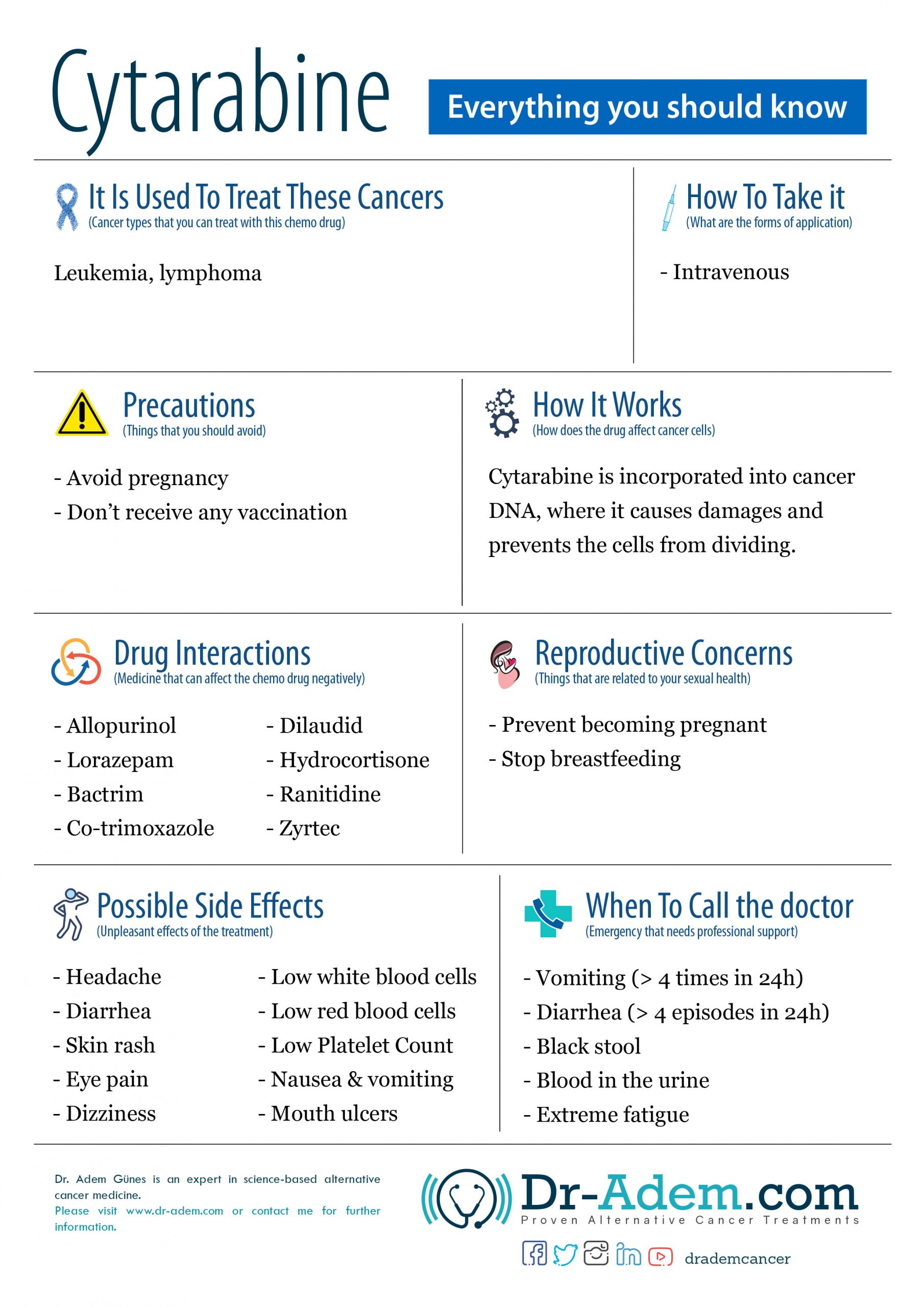Fact Sheet – Everything You Should Know
In this Cytarabine fact sheet, you’ll get to know about the precautions, usage, possible side effects, and the types of cancer that you can treat with this chemo drug.

Embed this Infographic on your site:
<a href='https://dr-adem.com/cytarabine-fact-sheet/'><img src='https://dr-adem.com/wp-content/uploads/2019/11/Cytarabine2-scaled.jpg' alt='Cytarabine Fact Sheet'/></a>Here’s the Cytarabine fact sheet to get detailed information about Cytarabine
It Is Used To Treat These Cancers
(Cancer types that you can treat with this chemo drug)
- Leukemia
- Lymphoma
How To Take it
(What are the forms of application)
- Intravenous (infusion time varies)
- Intrathecal (inside the spinal fluid)
Precautions
(Things that you should avoid)
- Avoid pregnancy
- Don’t receive any vaccination
- When used in high doses, needs to be used with corticoid eye drops
Mechanism of Action of Cytarabine
(How does the drug affect cancer cells)
Cytarabine is an antimetabolic agent (Pyrimidine antagonist subgroup). It is incorporated into the cells’ DNA, where it interferes with DNA synthesis for its division, so when the cell needs to replicate its DNA to divide itself, it isn’t able to produce the right proteins and dies. Rapidly dividing cells (such as cancer) are more affected (they go through the DNA replication process more often and are more prone to being destroyed).
Drug Interactions
(Medicine that can affect the chemo drug negatively)
- Allopurinol
- Lorazepam
- Bactrim
- Co-trimoxazole
- Dilaudid
- Hydrocortisone
- Ranitidine
- Zyrtec
Reproductive Concerns
(Things that are related to your sexual health)
- Prevent becoming pregnant
- Stop breastfeeding
- Consider sperm freezing if willing to bear children
Possible Side Effects
(Unpleasant effects of the treatment)
- Headache
- Diarrhea
- Skin rash
- Eye pain and inflammation
- Dizziness
- Low white blood cells: raise the risk of bacterial infection
- Low red blood cells: can lead to fatigue, general lack of interest and drive to be active
- Low platelets: can lead to bleeding (nose, gums) and in extreme cases to internal bleeding (intestinal, brain, joints)
- Nausea & vomiting
- Mouth ulcers
- Neurotoxicity
- Infertility
- Loss of appetite
- Liver toxicity
- Hair loss
- Kidney toxicity
When To Call the doctor
(Emergency that needs professional support)
- Vomiting (>4 times in 24h): can lead to severe dehydration and electrolyte disbalance
- Diarrhea (>4 episodes in 24h): can also lead to severe dehydration and electrolyte disbalance
- Black stool: can be a sign of intestinal bleeding
- Blood in the urine
- Extreme fatigue: can be a sign of severe anemia (low blood cells)
- Fever > 37,8°C


